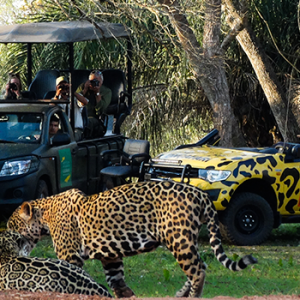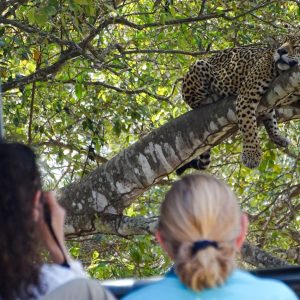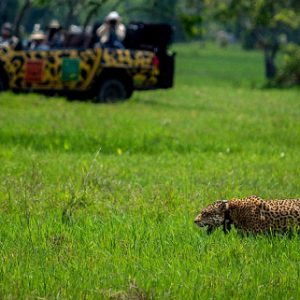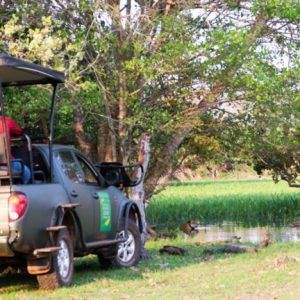Through the income generated by visitors, the residents and landowners have come to appreciate the indigenous species and function as conservation protagonists in the ecosystem where they live and work.
Onçafari Ecotourism works to make animals, such as the jaguar and the maned wolf, familiar with the presence of vehicles. As the animals become accustomed to the presence of the safari cars, they no longer see them as a threat and become more comfortable, which facilitates the development of ecotourism in the region.
Encounters with jaguars and wolves allow visitors to learn more about the species by their growing awareness of the importance of these predators in nature, and becoming involved in their conservation process. Part of the awareness campaign includes lectures on the species and other animals that live in the same biome. Apart from the talks delivered to guests visiting Onçafari, lessons are given at different schools, as well as at Brazilian and foreign universities.
Interested in exploring our ecotourism locations? Send an email to to receive more information about accommodations, pricing, and tours.









